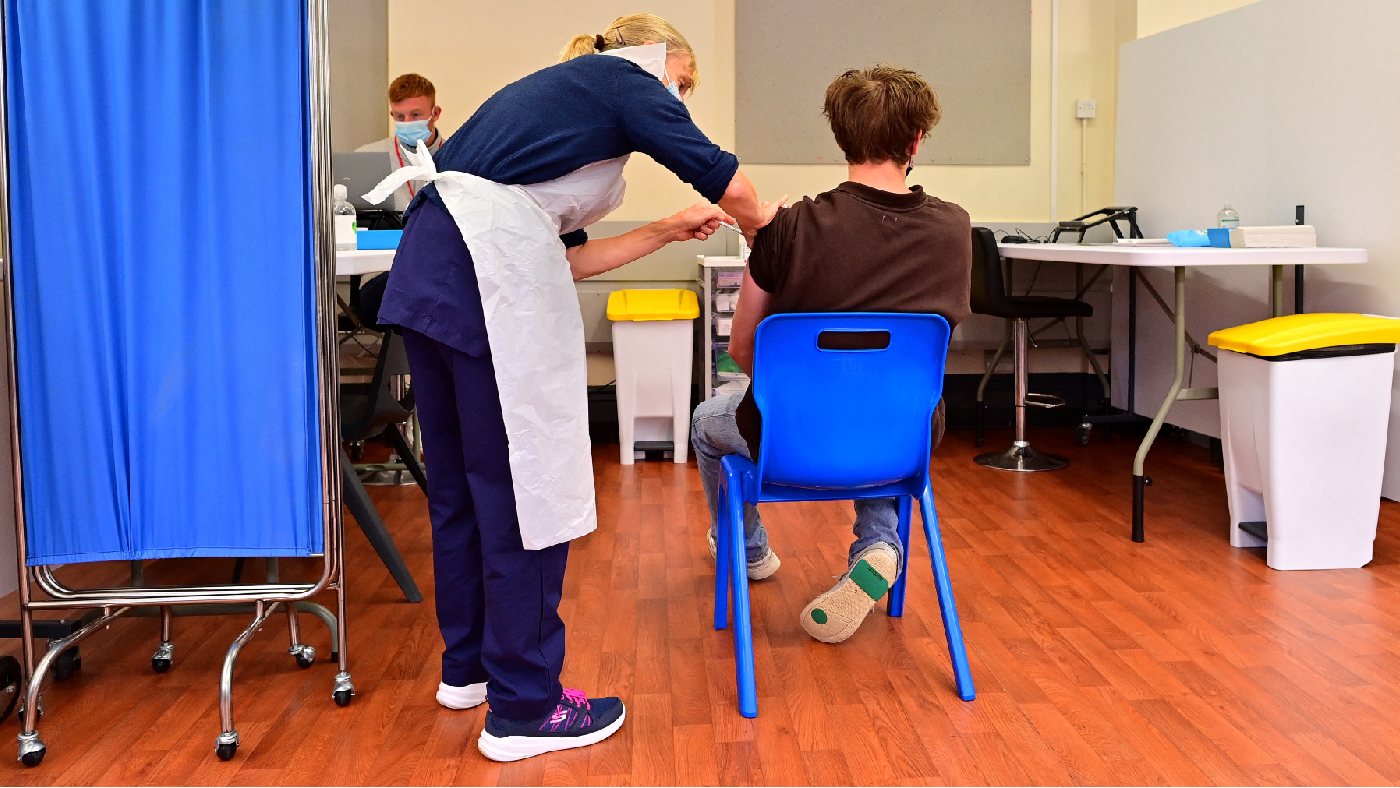Fact check: should you be worried about taking ibuprofen for coronavirus?
WHO reverses earlier recommendation that Covid-19 patients should avoid anti-inflammatory drugs

A free daily email with the biggest news stories of the day – and the best features from TheWeek.com
You are now subscribed
Your newsletter sign-up was successful
The use of anti-inflammatory drugs such as ibuprofen to treat Covid-19 symptoms has become a topic of hot debate amid claims that they might make the disease worse.
Euronews says the rumours have been fuelled by an apparently anonymous WhatsApp voice message in German that has “circulated widely on social media”. The clip features a woman who claims that “her friend, a doctor at the university hospital in Vienna, had warned her that most patients with severe symptoms of Covid-19 had taken the well-known drug” before being hospitalised, the news site reports.
Some experts have issued similar warnings. France’s Health Minister Olivier Veran, a neurologist, said earlier this week that taking such painkillers “could be a factor in aggravating the infection”, reports The Telegraph.
The Week
Escape your echo chamber. Get the facts behind the news, plus analysis from multiple perspectives.

Sign up for The Week's Free Newsletters
From our morning news briefing to a weekly Good News Newsletter, get the best of The Week delivered directly to your inbox.
From our morning news briefing to a weekly Good News Newsletter, get the best of The Week delivered directly to your inbox.
What is ibuprofen used for?
People with a temperature and flu-like symptoms are often advised to take ibuprofen, which helps to reduce fevers and eases any general aches and pains.
Why might the drug make Covid-19 worse?
Many of the fears about using anti-inflammatory drugs to treat the new coronavirus can be traced back to a letter published earlier this month in medical journal The Lancet.
A free daily email with the biggest news stories of the day – and the best features from TheWeek.com
“The authors proposed that certain drugs increase the number of so-called ACE2 receptors on the surfaces of cells,” explains The New York Times.
“The coronavirus uses these receptors to infect cells, the authors noted, and so in theory patients taking the drugs might be more vulnerable to the virus. One of the drugs was ibuprofen.”
But “there was no research to back up the contention”, the newspaper adds.
–––––––––––––––––––––––––––––––For a round-up of the most important stories from around the world - and a concise, refreshing and balanced take on the week’s news agenda - try The Week magazine. Start your trial subscription today–––––––––––––––––––––––––––––––
So is it safe to take?
On Tuesday, the World Health Organization (WHO) recommended that people suffering Covid-19 symptoms should avoid taking ibuprofen, following warnings from French health officials.
WHO spokesperson Christian Lindmeier told reporters in Geneva that the UN agency’s experts were “looking into this to give further guidance”.
"In the meantime, we recommend using rather paracetamol, and do not use ibuprofen as a self-medication,” he said. “That’s important.”
The NHS also changed its advice to say that while “there is currently no strong evidence that ibuprofen can make coronavirus (Covid-19) worse... until we have more information, take paracetamol to treat the symptoms of coronavirus, unless your doctor has told you paracetamol is not suitable for you”.
However, on Wednesday, WHO updated its advice. In a tweeted message, the agency said: “At present, based on currently available information, WHO does not recommend against the use of ibuprofen.
“We are also consulting with physicians treating Covid-19 patients and are not aware of reports of any negative effects of ibuprofen, beyond the usual known side effects that limit its use in certain populations.”
People who should not use ibuprofen at any time include those with asthma or some heart and circulatory problems.
Dr Rupert Beale, an expert in the cell biology of infection at the London-based Francis Crick Institute, cautions that ibuprofen may also “exacerbate acute kidney injury brought on by any severe illness, including severe Covid-19 disease”.
But he concludes: “There isn’t yet any widely accepted additional reason to avoid it for Covid-19.”
-
 How the FCC’s ‘equal time’ rule works
How the FCC’s ‘equal time’ rule worksIn the Spotlight The law is at the heart of the Colbert-CBS conflict
-
 What is the endgame in the DHS shutdown?
What is the endgame in the DHS shutdown?Today’s Big Question Democrats want to rein in ICE’s immigration crackdown
-
 ‘Poor time management isn’t just an inconvenience’
‘Poor time management isn’t just an inconvenience’Instant Opinion Opinion, comment and editorials of the day
-
 The new Stratus Covid strain – and why it’s on the rise
The new Stratus Covid strain – and why it’s on the riseThe Explainer ‘No evidence’ new variant is more dangerous or that vaccines won’t work against it, say UK health experts
-
 Covid-19: what to know about UK's new Juno and Pirola variants
Covid-19: what to know about UK's new Juno and Pirola variantsin depth Rapidly spreading new JN.1 strain is 'yet another reminder that the pandemic is far from over'
-
 Vallance diaries: Boris Johnson 'bamboozled' by Covid science
Vallance diaries: Boris Johnson 'bamboozled' by Covid scienceSpeed Read Then PM struggled to get his head around key terms and stats, chief scientific advisor claims
-
 Good health news: seven surprising medical discoveries made in 2023
Good health news: seven surprising medical discoveries made in 2023In Depth A fingerprint test for cancer, a menopause patch and the shocking impacts of body odour are just a few of the developments made this year
-
 How serious a threat is new Omicron Covid variant XBB.1.5?
How serious a threat is new Omicron Covid variant XBB.1.5?feature The so-called Kraken strain can bind more tightly to ‘the doors the virus uses to enter our cells’
-
 Will new ‘bivalent booster’ head off a winter Covid wave?
Will new ‘bivalent booster’ head off a winter Covid wave?Today's Big Question The jab combines the original form of the Covid vaccine with a version tailored for Omicron
-
 Can North Korea control a major Covid outbreak?
Can North Korea control a major Covid outbreak?feature Notoriously secretive state ‘on verge of catastrophe’
-
 Did Sweden’s Covid-19 experiment pay off in the end?
Did Sweden’s Covid-19 experiment pay off in the end?In Depth Scandinavian country had lower excess death rate than many but immigrants and elderly bore the brunt